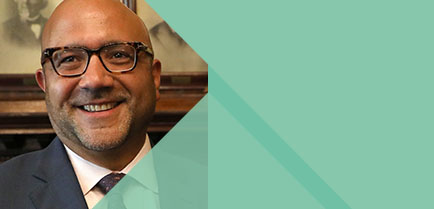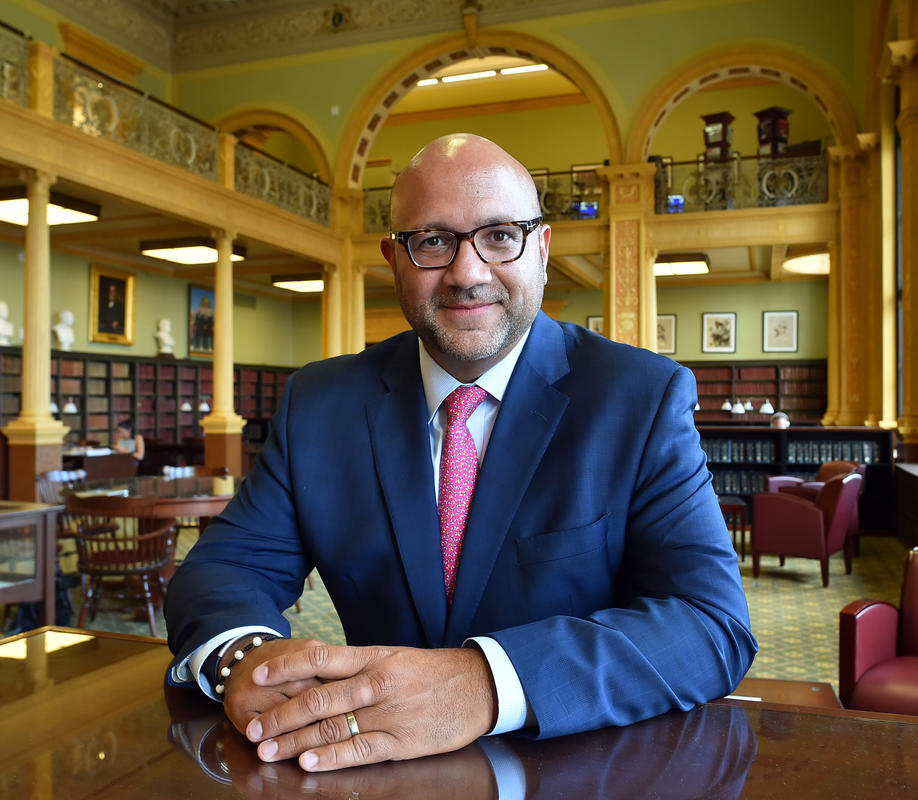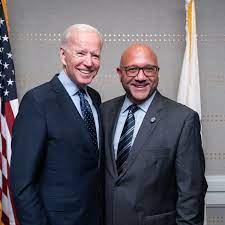It was a postcard perfect Friday morning in spring at Boston’s Forest Hills Cemetery, and the sun poured down through the sunroof of his SUV as Jeffrey Sánchez spoke by phone with a curious stranger, sharing the details of an unlikely life ascent perhaps better-suited as a Hollywood script.
He flipped back through the calendar pages of his mind’s eye and started slowly.
“My father was a World War II vet and dock manager at a textile company, and my mom grew up in the tobacco fields in Puerto Rico,” he began.
Sánchez has seen plenty in his 50-something years since those days. He still remembers the rancid stench, the rats and roaches, the burned-out cars and trash-filled streets of 1970s Mission Hill in the pre- and post-busing era of Boston, where he moved with his family at age 4 from Washington Heights, NYC. He can still hear the drop of each boot from the marching riot police on Smith Street.
“It sticks with you,” he said.
He sold 4 a.m. Boston Globes on street corners and on a cart in the LMA hospitals as one of the last of Bob White’s newspaper boys at age 10. He was among many with brown or black skin wrestled into the back of cop cars during the aftermath of the Charles Stuart murders in late 1989.
“I tried to stay out of trouble, but I did stupid stuff, too,” he said. “It was easy to fall into those things.”
So now, as he reflected on a career that has since put him at the right hand of Boston Mayor Tom Menino, on the front lines in the fight for affordable health care in Massachusetts, in charge of a $42 billion state budget, before the best and brightest students in the world as a Harvard lecturer, on the 2018 list of the 100 Most Influential Bostonians in Boston magazine, and a speed-dial away from one of Boston’s most prominent philanthropists, he marveled at the improbability of it all.
“A kid like me doesn’t get –” he said, and then paused, collecting his thoughts. “A kid like me doesn’t have this trajectory, you know what I mean?”
That trajectory, Sánchez acknowledges, is a product of a lifetime of those and more hardscrabble experiences, a bit of good fortune, and undoubtedly a stream of good people helping to light the way.
And if his mother – the fighter, the neighborhood organizer, the woman who most men of power saw as an impatient, tall, red-lipsticked, red-heeled, proud Puerto Rican, and who Sánchez calls “my guiding light” – is first on that list of critical influences, not too far down from her you’ll find that Boston philanthropist.
“You know, Jerry Rappaport has not let me go since the day he met me,” he said. “I get emotional talking about the guy because, you know, I’m a Puerto Rican kid from the projects, and I’ve got this incredibly accomplished friend. But it’s not like that. When he calls, he calls me man to man.
“I love the guy to death, and I know he loves me to death.”
Since 2019, Sánchez has been a senior advisor at Rasky Partners, one of the largest and most respected independent public relations and public affairs firms in the United States. Prior to that, he was a 16-year member of the Massachusetts House of Representatives, chairing the Committee on Public Health, Committee on Health Care Finance, and Ways and Means Committee as part of that service.
It was in in the middle of his State House career that his life intersected with that of Jerry Rappaport, as Sánchez became a Rappaport Urban Scholar in 2010, writing his financial ticket to the Harvard Kennedy School of Government’s Mid-Career Master in Public Administration program.
It was a full-circle moment for a man who three decades prior, as a pre-teen playing around with his friends, had regularly been chased off the hallowed grounds of Harvard Medical School quad – even handcuffed once or twice. The HKS education grabbed hold of what had been a promising if unpolished raw talent and gave it a new shine.
“I had the fundamental knowledge, but what I didn’t have was the technical,” Sánchez said. “What Jerry and Phyllis Rappaport did for me was to help me realize my own capacity, fight my own insecurities, and realize that I could do something bigger.
“The cost of that education is probably a drop in the bucket for them, but it made a real difference for me, man.”





